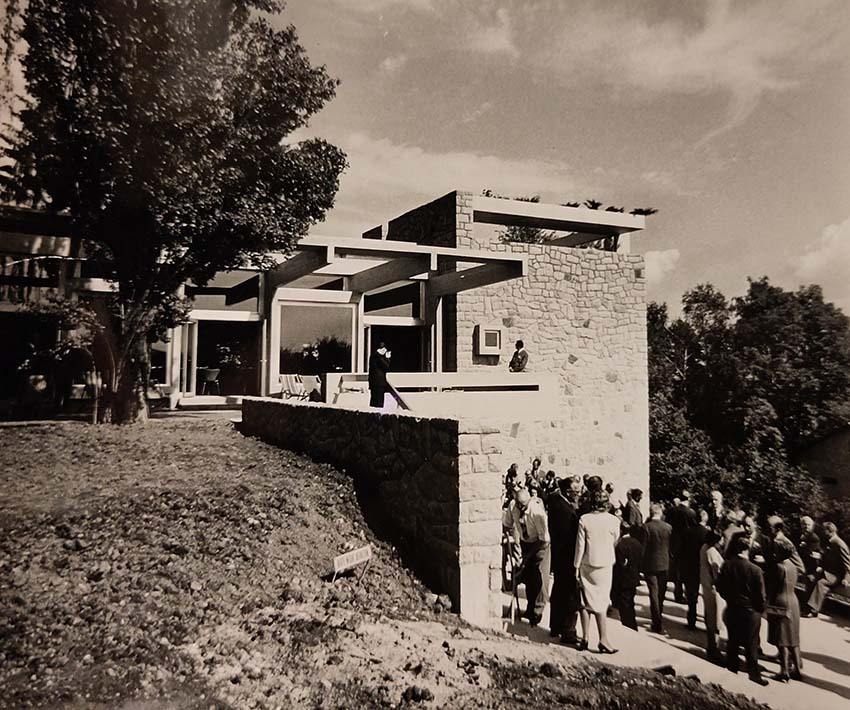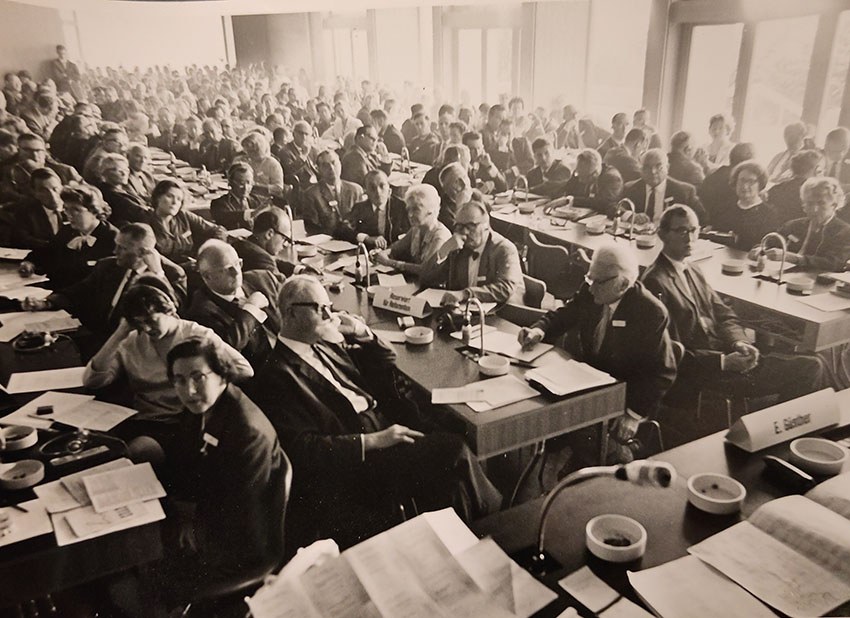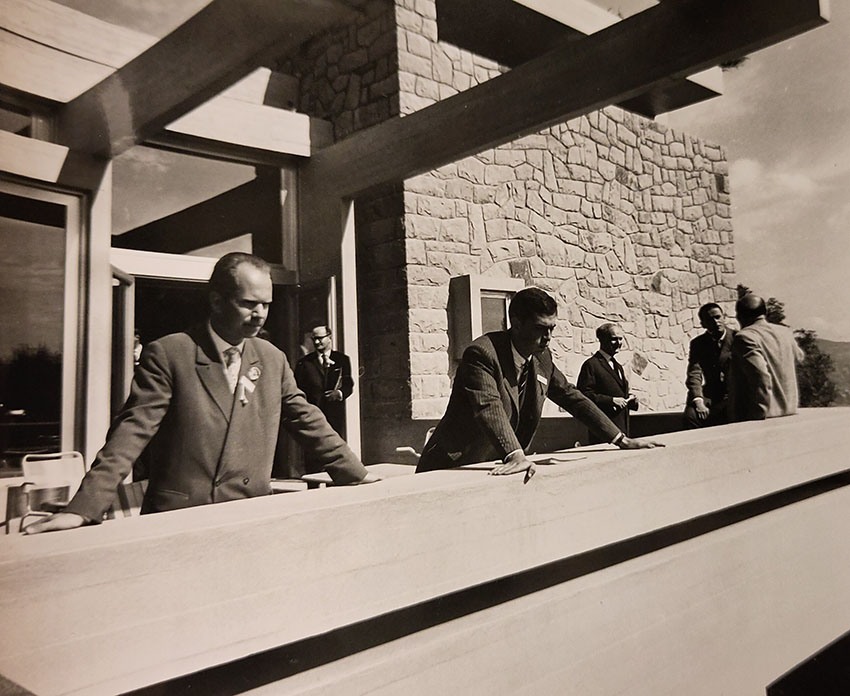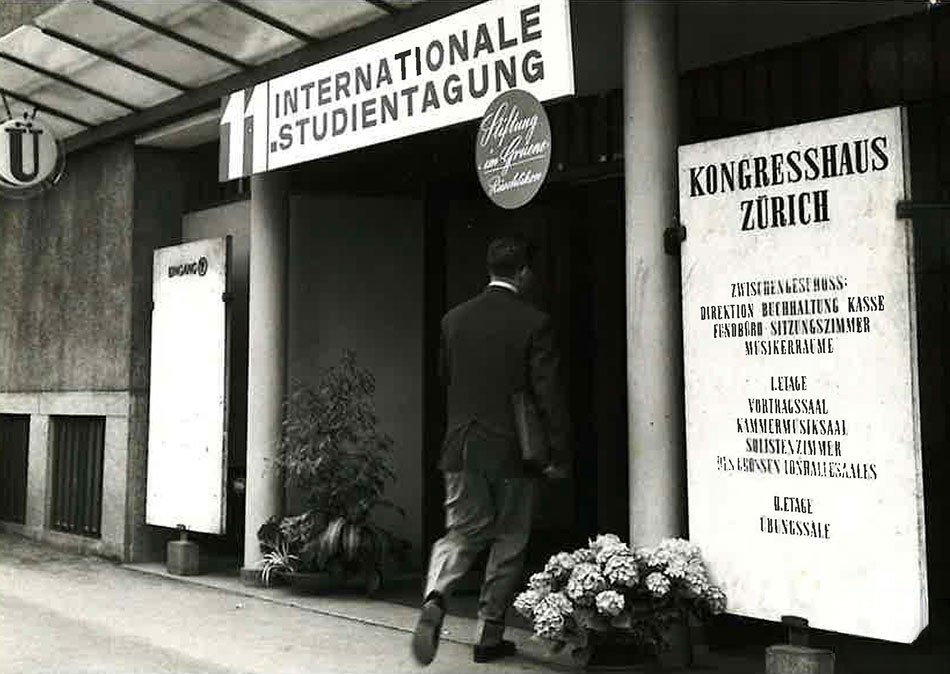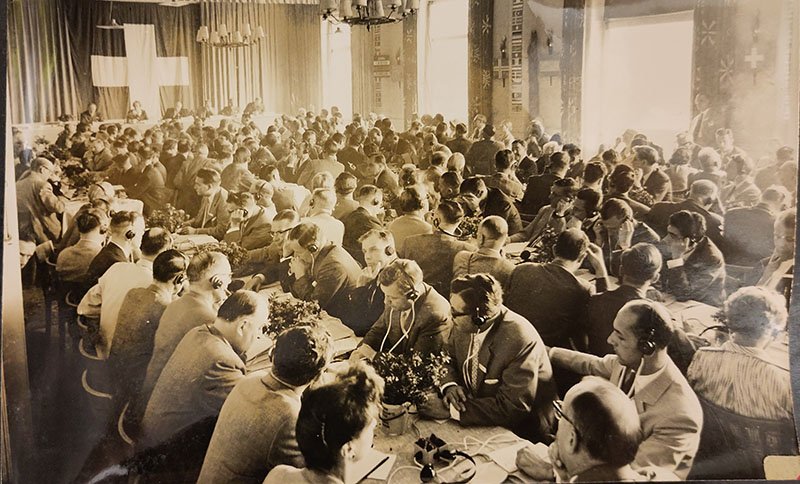Rüschlikon, autumn 1951: Trade experts from all over the world sit together in a hotel room with a view of Lake Zurich. They discuss new shop formats and exchange ideas and methods for promoting successful customer loyalty, while their companions explore Switzerland by boat, car and mountain railway. What began as a six-day study week is now a 1.5-day high-calibre conference where international thought leaders shape the future of retail. In the early years, the participants of the summit met in hotels such as the Belvoir in Rüschlikon and, from 1963, at the newly opened Gottlieb Duttweiler Institute in the "Park im Grüene". At the end of the 1970s, it was given its current name: International Retail Summit. From the 1950s to the 21st century, the core question has always been the same: How do we shape the retail of tomorrow?
The first conference at the newly opened Gottlieb Duttweiler Institute in 1963
Extra curriculum
Since 1951, international industry insiders and renowned experts from the retail sector have been giving keynote speeches and taking part in panel discussions at the summit. In addition to the presentations and panels, the programme also included workshops and networking events as well as factory tours held in connection with the event. For example, participants have visited the Migros sales vehicles and the Micarna production plant. The organisers also offered a special programme for "the ladies of the summit participants", as shown in brochures from the early days of the summit. This included a boat trip to Rapperswil and a car journey to Lucerne including lunch on the Bürgenstock, which meant they also enjoyed interesting trips within Switzerland.
Impressions from the early years of the Retail Summit
Anecdotes and highlights from the GDI archive
- 1951: Modern trends and problems in the distribution of goods
The first study conference started with a broad programme of topics: from self-service shops, product range selection and goods distribution to the challenges faced by small businesses and large department stores. In sessions held from Monday to Saturday, the participants presented and discussed practical examples from around the world. For example, a representative from Paris described how French women are reluctant to visit self-service shops. Ordinary women were said to feel embarrassed to display the few cheap items they can afford to buy in a wire basket. The minutes recording the first verdicts and findings of the study conference show how valuable this exchange is in Switzerland:
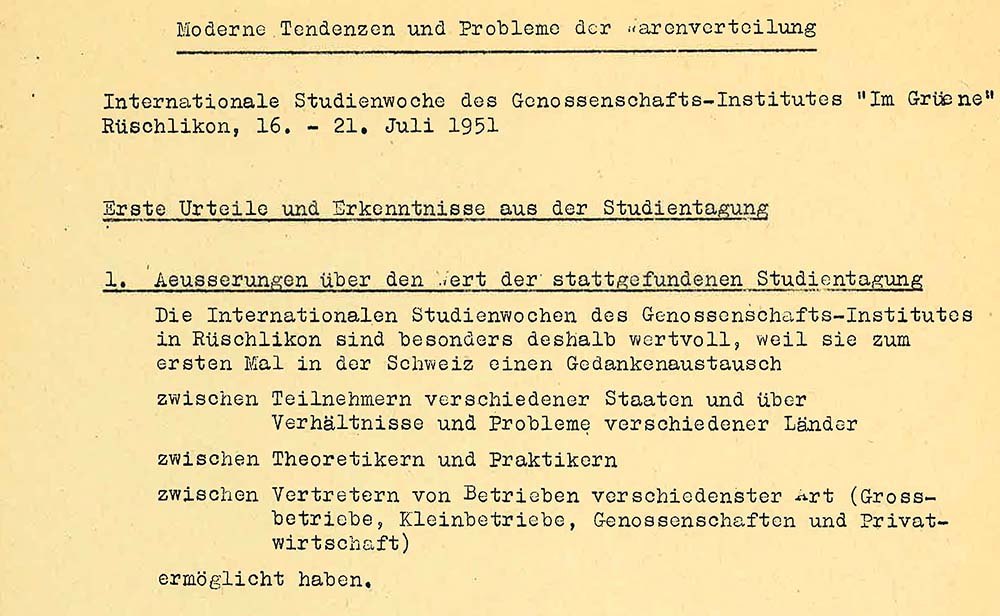
- 1953: Human relations inside and outside the company
In the panel discussions, the participants summarised that a great deal still needs to be done in the field of studying customer psychology. This is because "the customer is the most important factor for retailers" emphasises Prof. R. G. Magnus-Hannaford from the UK, and warns at the same time: "The view that excellent customer relationships must be created and maintained by offering an excess of services – home deliveries, telephone orders, customer credit, etc. – is to confuse services with consumer service." - 1957: Problems with leisure activities
There is unanimous agreement in the open discussion – people are overworked and the amount of leisure time they have should be extended. The considerations that follow are exciting: What do people do when they suddenly have more free time? And how can and should companies support meaningful leisure activities for their employees? In the panel, one participant wants to know "what the woman who has her husband at home every evening and on Saturday will think of this." A Mrs Heymann replies: "Difficulties arise in some families when the father or husband has too much free time and doesn't know what to do with this time. In this case, the men should try to make themselves useful at home." - 1958: New aspects of self-service and automation in retail
At the end of the 1950s, self-service did not meant autonomous shops without any staff as can be found in Switzerland today, but about replacing over-the-counter sales. Customers can now hold the goods in their hands and inspect them before buying. Pre-packaged fresh products such as meat, which discolour quickly depending on the packaging, proved to be particularly challenging. The discussions centred on materials, lighting, packaging centres, but also on increasing shoplifting in self-service stores. This is an issue that also causes problems for autonomous shops today. However, the participants could not imagine a fully automated shop: "Self-service brought customers and goods closer together; however, excessive automation would also take the grocery shop away from the customer."
- 1964: Staff shortages: a real shortage or waste?
With staff shortages prevalent in the mid-1960s, the panel discussion raised the question of whether this was due to a genuine shortage or rather a waste of human resources – and as is so often the case, the answer was "a bit of both." Dr. Munz, for example, says: "The joy people find in work and employee work ethic has suffered everywhere, including here in Switzerland. Every employer would do well to consider where they can find toeholds within their company to instill a company ethos."
- 2001: Consumer-centric retailing
"Value for money" is being replaced by "value for time" – which raises the question of why people shop at all. And what retail companies can offer people who no longer want to spend their time shopping. According to one speaker, the key lies in the relationship with people. Right at the beginning of the millennium, the GDI emphasised the importance of proximity to customers, a topic that will also take centre stage at the 75th Retail Summit.
Since 1951, the International Retail Summit in Rüschlikon has been a key event for visionaries within the retail sector. Internationally renowned industry experts and pioneers discuss current challenges and future developments. Acting as a bridge between research and practice, the summit has its finger on the pulse of the times and has offered a valuable platform for discussions and networking opportunities since the first event. Confirmed speakers for this year's conference in September include: Beatrice Weder di Mauro (professor and renowned economist), Christopher Carl (Head of Marketing US at AliExpress), Michael Mueller (CEO of the Valora Group), Antje von Dewitz (CEO of VAUDE) and Nicholas Christakis (Professor of Social and Natural Science at Yale University).
